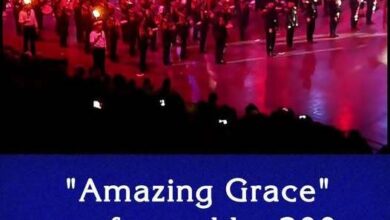In 1991, Metallica’s “Monsters of Rock” show in Moscow drew over 1.6 million attendees.
In 1991, Metallica’s performance at the “Monsters of Rock” festival in Moscow stands as one of the most iconic moments in rock history. The festival, which featured other renowned acts like AC/DC, Pantera, and The Black Crowes, was held at the Tushino Airfield, drawing an unprecedented crowd of over 1.6 million people. This event was not only remarkable for its scale but also for the cultural and historical context in which it took place.
The concert occurred during a period of tremendous change in Russia, coming on the heels of the Soviet Union’s dissolution. The political and social environment in the country was charged with the energy of transformation, making this concert more than just a musical event. It symbolized a break from the past and a movement toward greater freedom and openness. For many Russian fans, the “Monsters of Rock” festival was their first exposure to live performances by Western rock bands, an experience that was both exhilarating and transformative.
Metallica, already a global phenomenon by 1991, was at the height of their powers. The band’s lineup at the time featured James Hetfield on vocals and rhythm guitar, Kirk Hammett on lead guitar, Lars Ulrich on drums, and Jason Newsted on bass. Known for their intense live performances, Metallica delivered a set that resonated deeply with the massive audience. Their performance included classic tracks like “Enter Sandman,” “Creeping Death,” and “Master of Puppets,” songs that had become anthems for fans worldwide.
The scale of the Moscow concert presented significant logistical challenges. Coordinating an event of this magnitude required meticulous planning, from managing the enormous crowd to ensuring the safety of all involved. The authorities were wary of potential unrest, given the size of the gathering and the political climate, but the event proceeded smoothly. The successful management of the crowd was a testament to the organizers’ efforts and underscored the unifying power of music.
For Metallica, the Moscow performance was a pivotal moment in their career. It solidified their reputation as one of the world’s leading rock bands and showcased their ability to connect with audiences on a massive scale. The energy of the performance, coupled with the historic significance of the event, created an unforgettable experience for both the band and the fans. The sight of over a million people united by the power of music was a profound image, one that has been etched into the annals of rock history.
The concert also had a lasting impact on the Russian music scene. It marked the beginning of a new era of cultural exchange, where Western music became more accessible to Russian audiences. The success of the “Monsters of Rock” festival demonstrated the universal appeal of rock music and its ability to transcend cultural and political barriers. For many Russian fans, the concert was a defining moment in their lives, an experience that opened up new worlds of musical possibilities.
Metallica’s performance in Moscow is often cited as one of the greatest live performances in rock history. The band’s ability to command such a large audience and deliver a powerful, emotionally charged set speaks to their status as one of the most influential rock bands of all time. The concert has since become a legendary event, frequently referenced in discussions about the most significant moments in live music.
Beyond the immediate impact of the concert, Metallica’s Moscow performance had broader implications for the global rock scene. It demonstrated the potential for rock music to reach new audiences and break down cultural barriers. The event also highlighted the role of live music in fostering a sense of community and shared experience, even in the most challenging of circumstances.
The legacy of the 1991 “Monsters of Rock” concert in Moscow continues to influence the world of live music. It remains a benchmark for large-scale music events and a reminder of the power of music to bring people together. For Metallica, the concert is a proud moment in their career, one that showcased their ability to connect with fans on an unprecedented scale and reaffirmed their place as one of the most important rock bands in history.
Today, the Moscow performance is remembered not only for its scale and significance but also for the spirit of unity and celebration that it embodied. It serves as a powerful example of how music can transcend boundaries and create moments of shared humanity, even in times of great change. The 1991 “Monsters of Rock” concert in Moscow remains a milestone in the history of rock music, a testament to the enduring legacy of Metallica and the transformative power of live performance.



